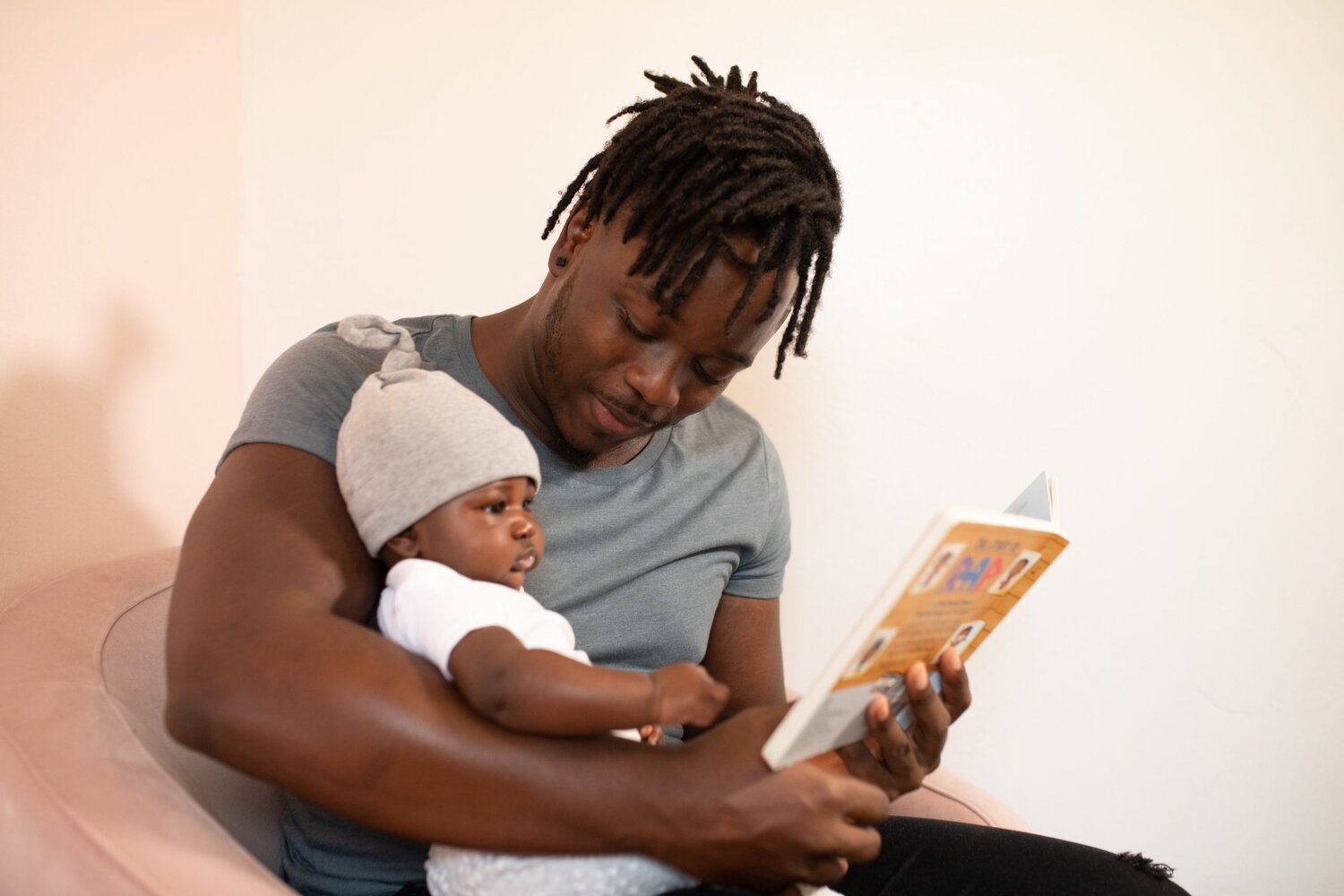Discover The Simply Great Relationships Podcast: Love | Marriage | Sex | Communication | Dating Advice
The Simply Great Relationships Podcast: Love | Marriage | Sex | Communication | Dating Advice

The Simply Great Relationships Podcast: Love | Marriage | Sex | Communication | Dating Advice
Author: Meredith Silversmith and Marina Voron | Relationship, Intimacy and Connection Experts
Subscribed: 179Played: 4,706Subscribe
Share
© 2017 Silveron Productions, LLC
Description
Meredith Silversmith and Marina Voron from Simply Great Relationships share their best tips for creating the wildly satisfying relationship of your dreams. They provide simple, actionable steps you can use right away to improve your relationship. Meredith and Marina cover love, sex, communication, dating advice, pleasure enhancement, conflict resolution, desire and intimacy, happiness, connection, and more! This is a must-listen for anyone who is dating, married, or hoping to be in the future.
103 Episodes
Reverse
Are Kegels as close as you’ve gotten to being informed about pelvic floor health?If so, this week’s episode is for you.Some signs that you may be having pelvic floor issues include:- Incontinence- Lower back pain- Discomfort with sex- A weak coreIf you’re experiencing any issues, it’s best to work with a pelvic floor physical therapist. Our guest this week, Kim Vopni, is talking all things pelvic health. She’s providing tips for finding the best pelvic floor physical therapist in your area and making the experience as comfortable as possible. Kim is also sharing exercises you can do at home to strengthen your pelvic floor. The benefits of pelvic floor health are increased confidence, more pleasurable sex, and more closeness in your relationship. Kim is offering our podcast listeners $10 off her Kegel Mojo program with coupon code SGR.
Ever wonder what “mindfulness” really is?This week we’re speaking with mindfulness expert, Sarah Harmon, about mothering oneself mindfully. If you find yourself deep in negative self-talk and critique, losing your patience when things don’t go as planned, or spending too much time overthinking - this episode is for you.To learn more, be sure to check it out. We’re covering what mindfulness really is, the importance of the relationship we have with ourselves, and how to be more mindful in our partnerships. Sarah is offering a free 10 minute meditation for you to get started! Her next round of The School of MOM starts October 12, 2020, so be sure to register for a reminder on her website if you’re interested.Sarah Harmon is a mom to two girls, certified mindfulness and yoga instructor, and Licensed Mental Health Professional. Her philosophy artfully combines mindfulness teaching with modern data and science for an approach that is effective, results-driven, and evidence-based. She hopes that her curated programs and offerings, which are grounded in community, will help women and moms shift generational cycles of guilt, shame, and judgment. You can learn more about The School of MOM on her website and by following her on Instagram @the.schoolofmom.
In this week’s episode, we’re talking to Jasmine Johnson, a sex educator, entertainer, and therapist. Through her own journey of self-exploration, Jasmine became aware of how people tend to lose their identity when they become parents or professionals. She started Jet Setting Jasmine to help people come together for the fun of sex, learning what they like, and overcoming sexual shame.Jasmine found that shame gets in the way of sexual pleasure and wanted to help people enjoy their fetishes and expand their sexual repertoire. In order to do this, you need to:- Be more intentional about being on a journey to improve and enrich your sex life- Develop a sexual persona and figure out what your impasses are- Go on a journey of self-discovery to learn what you enjoyTo learn more about how to use porn as a source of entertainment and expansion, rather than education, explore kinks and fetishes, and reduce sexual shame, be sure to listen to this week’s episode.Jasmine Johnson is a licensed clinical therapist and owner of Blue Pearl Therapy with a strong emphasis on Intimacy Post Injury, Trauma, and Intimacy Post Illness. She co-owns Jet Setting Jasmine and Royal Fetish Films, where the love of the arts, film, and sex education are combined to produce erotica that stimulates and engages the audience to push their sexual boundaries. Jasmine facilitates online workshops to help people explore and is a great educational resource. She has over 20 years of experience as an Adult Entertainer, Educator, and Master Fetish Trainer. Jasmine is a three-time award winning adult film star and has dedicated her craft to creating a more inclusive and ethically sound adult entertainment industry.
It’s our 100th episode!We hope you’ve been enjoying the interviews we’ve been doing with experts in the field. For today, we thought it would be best to come back together and a Marina and Meredith episode. We wanted to celebrate this milestone by giving you a revamped all things communication episode. If you haven’t already listened to Episode 001 - Communication that Actually Works, please do so first.This week’s episode is covering a few more advanced communication strategies for couples. We’re talking about why transparency is key, the power of giving your partner the benefit of the doubt, how to own your own stuff, the three magic questions you must ask yourself, and how to recognize your partner’s needs in a conversation.
You know those conflicts where you go from 0 to 100 in no time?Or you say something benign and your partner reacts with rage?It’s likely your inner child is making an appearance. I’ll be honest - when I’ve heard about the “inner child” in the past, I’ve rolled my eyes. But, after recording this episode, I have an entirely new understanding of this concept. And let me tell you, it’s playing out in all of our relationships.This week we’re speaking with Saadia Z. Yunus, LMFT, about how our inner child shows up in our relationships. We talked about what the inner child really is, how to know when it’s showing up, and how to manage these sensitivities effectively.
Over the years, we’ve been asked a lot of questions by the couples we work with. Some are not always appropriate to answer in the therapeutic context. So, we’re answering them here today.The 5 questions you wish your couples therapist would answer are:- Should we get divorced?- Are we a good match?- Do couples recover from... infidelity, emotional disconnection, dry spells, a sexless marriage, opening a relationship?- My partner’s wrong, right?- Do you really care about your clients?We’re answering these questions transparently on this week’s episode and sharing everything you always wanted to know. Be sure to check it out!
What’s more fun than getting a behind-the-scenes look at a couples therapist’s marriage?We’ve had the unique experience of dating our husbands throughout graduate school, while we were learning the do’s and don’ts of healthy relationships. We pulled them along for the ride, shared what we were learning, and practiced exercises with them. I’d say it served us tremendously. Today’s guests have had a similar experience!In this week’s episode, we spoke with Stranz and Mallory Wolfgramm, couples therapist, about their top three tips for making marriage work. We discussed why going to bed angry isn’t the marital death-sentence it’s made out to be, why time-outs during arguments are a necessity, and how to share concerns with your partner in an effective way.They’ve offered a free download, 10 Steps to Stop an Argument Dead in Its Tracks, which you can download here: Get the Freebie
Women often talk about the “mental load.”I, personally, have had this conversation with my husband countless times. It goes something like this:Me: “If I didn’t think of everything that has to get done, it wouldn’t get done. Why do I have to do everything?”Him: “You don’t have to do everything, just tell me what you need me to do and I’ll do it.”Me: “But, that’s the point. If I have to tell you what to do, I still have to think about it.”Can you relate?These conflicts typically get triggered before a holiday, family event, or other scenario where the day-to-day responsibilities are intensified. We start to feel overwhelmed, unappreciated, and unsupported. Watching our partner check emails, take their time getting ready, or grab a seat on the couch, while we’re rushing around wrapping gifts, preparing food, and blow drying our hair can be pretty frustrating.Luckily, this week we’re talking to Dr. Morgan Cutlip about sharing the mental load. We discussed what the mental load really is, how to open up a conversation with your partner about it, and the specific process to work through as a couple to share the responsibilities more fairly. If this is something you’ve struggled with in your relationship, be sure to listen in.
Everyone has sexual fantasies.People generally feel shame about their fantasies and think they’re “weird” or uncommon. Research shows that having and exploring sexual fantasies and talking about them in the context of your relationship leads couples to have the most satisfying sex lives.Here are a few tips to set yourselves up for success:- Do your own work around shame by educating yourself and normalizing your fantasies- Communicate with your partner and go through the learning curve together- Integrate fantasy in small ways, instead of jumping into the deep end of the pool right away.In this week’s episode, we’re talking to Dr. Justin Lehmiller, a preeminent sexual fantasy researcher, about what’s “normal,” the role of fantasy, and how we can incorporate it into couples’ sex lives. We covered the 7 most common types of fantasies, how to communicate with your partner about yours, and how incorporating fantasy can be enriching and broaden your sexual repertoire. Dr. Lehmiller’s book, Tell Me What You Want: The Science of Sexual Desire and How It Can Help You Improve Your Sex Life, is an excellent educational resource for couples looking to get started.
The first year of marriage is the hardest, right?When couples go from dating to living together, they’re suddenly faced with “having to” make it work. Time apart is no longer built into your weekly routine, you don’t go home to cool off after an argument, and you see and speak to each other every day. There are many more opportunities to see your partner in their best (and worst) moments. This allows you to grow to the next level of friendship, emotional intimacy, and physical intimacy.Instead, you may feel disconnection. You may panic about things that feel harder now than they did before - communication, conflict resolution, and getting along. You may wonder if you made the right decision moving in together or getting married. You may take the perspective that your partner must have changed, they’re getting “too comfortable,” or this is why people refer to marriage as the “ball and chain.”Or you can get a better understanding of why things feel different (this is totally normal) and what you can do to set yourselves up for many years of a fulfilling, loving, and connected marriage.In this week’s episode, we’re speaking with Kayla Levin, Newlywed Coach, about the struggles she sees newly married couples face time and time again, the biological process of infatuation and how we can conceptualize long-term love, and specific strategies for enhancing your marriage at any stage.Kayla Levin, CPLC, is a Certified Life Coach and Newlywed Coach. She is the host of the popular podcast, First Year Married, and lives with her husband and four children in Israel. You can find Kayla at firstyearmarried.com, over on Instagram @firstyearmarried, or on Facebook at Kayla Levin Marriage Coach. Kayla is offering listeners of the podcast 10% off her 6-part newlywed course with the code SIMPLY. You can check out the course here: First Year Married - The Self-Guided Course
Well, 60 episodes ago we talked about 6 common relationship problems that aren’t actually problems. It happened to be the most popular episode so far. Today, we thought we’d revive that with three more myths.We love myth-busting because our perspectives inform what we think, how we feel, and what we do in life. If we view a particular interaction with our partner as a “problem,” we’re more likely to think negatively about them and the relationship, feel frustrated or upset, and act accordingly. We’ve realized that many couples view things as problems that are not actually problems - causing unnecessary stress and conflict. So, we wanted to take the opportunity to shed some light on these.If you and your partner experience any of the following, this episode is for you:- Not always liking each other- Being attracted to other people- Periods of feeling disconnectedIf you’re ready to get your myths busted and see your relationship in a more positive light, be sure to check it out.
Consider the following:“I am more focused on changing my partner, than I am on changing myself.”“If my partner is unhappy, I am incredibly uncomfortable and feel I need to fix or change their emotional state.“I need to sacrifice my own happiness and/or well-being in order to ensure my partner is happy.”If these statements rang true for you, you may have a tendency towards codependency.Codependency is a dynamic in relationships that lends itself to dissatisfaction, resentment, and having unmet needs. Once identified, you have an opportunity to shift it. You can work to:Become aware of what triggers codependent behavior for youExplore the ways codependence has tried to keep you “safe”Identify alternative behaviors, when these triggers arise, that are healthier and will serve you bestIn this week’s episode, we’re talking with codependency expert, Marlena Tillhon, MSc. She’s sharing common traits of codependency in relationships, how codependency can create challenges in a partnership, and strategies for moving towards a healthier dynamic.Marlena Tillhon, MSc, is an experienced psychotherapist specializing in helping people end their struggles with codependency and insecure attachment and learn how to create healthy relationships so that they can finally get the love they need. You can visit her website at marlena.love, follow her on Instagram @lovewithclarity, and join her Love with Clarity community on Facebook. Marlena has a free video course, Losing Yourself in Relationships, that you can access here.
We’ve all heard it.Mid-argument with our partner:“You’re just like your mother!”But, what does that really mean? Why is it so common?We learn how to be in relationships by observing our parents and the adults in our life growing up. We experience love in the ways our parents or caregivers showed us love. The way the important adults in our life expressed their emotions - happiness, frustration, anger - towards us, are the ways we expect our adult partners to do so.Now, here’s where it gets tricky.Maybe, we didn’t get along well with our parents or caregivers. Maybe we moved out and vowed never to be treated that way again. We might have hated the way they expressed anger or never really felt loved. But, somehow, we internalized that model for relationships and carried it with us into our marriage.We view our partner’s actions through the lens of this model and we act (and react) accordingly.Think of a blueprint that tells you what to do when your partner expresses anger, sadness, or love towards you. Do you push them away? Do you up the ante? Do you yell louder? Do you shrink down and stay quiet?The dynamics that we grew up with have a tendency to play out in our adult romantic relationships. The good news is they are not unchangeable. By getting really clear on your own template and sharing it with your partner, you two can work together to create your own, new blueprint.In this week’s episode, we’re talking about how these blueprints are formed in our families growing up, how they influence our relationship in the present, and exactly how to move forward with making changes.
Do you know what your attachment style is?Each of us develops an attachment style early in life - it’s solidified by about age 3 - that we take with us into future relationships. While we can’t change our style, we can use it to provide context for our thoughts, feelings, and behaviors in relationships. The more we know, the more we can adapt to healthier ways of being with our partner.There are four common styles:- Secure attachment- Anxious attachment- Avoidant attachment- Anxious-avoidant attachmentInterestingly, many anxiously attached individuals partner with avoidantly attached individuals. This dynamic sets the stage for a pursuer-distancer dance (think: one person is highly focused on and sensitive to their partner’s feelings towards them, while the other is highly focused on creating space and not getting too attached) that lends itself to chronic conflict and emotional floodingIn this week’s episode, we’re chatting in depth with Katie Miles, LMFT about how to identify your own attachment style, what can happen when you and your partner have different attachment styles, and strategies for creating more security for yourself and your relationship.Katie Miles is a Licensed Marriage and Family Therapist and co-founder of Habitbetter, an online institute that guides you to a more fulfilling life through the power of habits. She completed her clinical training at one of the top 10 medical centers in the U.S., where she worked for three more years with a variety of populations. Katie worked alongside and taught evidence-based practices to psychiatry and psychology residents, medical students, and other clinical professionals. As a licensed psychotherapist in private practice, she works with individuals, couples, and families to manage and overcome their struggles, heal and strengthen relationships, move through pain and suffering, and find growth and fulfillment. Katie genuinely loves being a therapist and getting to witness humans do the most amazing things!Katie was kind enough to offer a special discount to our listeners! Use the code SIMPLYGREATHABITS2020 to get 50% off her relationship course. You can access her course here: Healthy Relationships Crash CourseYou can find Katie on Instagram @connectionwithkatie or at Katie Miles, LMFT.
If you and your partner have been “staying at home” together these past few months, you may have come to a realization:We have no shared hobbies.So many couples are facing this, as the usual hustle-and-bustle has been paused. Gyms, restaurants, and movie theaters have been closed. Spas and salons have been closed. Spending time with friends has been put on hold.You may have been looking at your partner trying to figure out what in the world you’re going to do together. This can be challenging for a number of reasons.
When was the last time you asked your partner how they were doing? I mean really took the time, distraction-free, to sit, look them in the eye, and asked.My guess is - probably not recently enough.This conversation should be happening daily. Every day, you and your partner should be sitting down for 15 to 20 minutes to check in with one another.How are you feeling?What’s your biggest stressor right now?Is there anything I can do to help you with that?This simple practice has a number of benefits, like:Increased emotional intimacyFeeling supported by your partnerKnowing what’s really going on in your partner’s inner worldGiving benefit of the doubt easily because you have a more accurate context for your partner’s words and actionsReduced stressDeposits in the emotional bank accountShowing up for this daily check-in is important all the time, but now, especially, with the increased stress and anxiety many of us are experiencing it’s even more crucial.In this week’s episode, we’re talking about the importance of doing a daily check-in with your partner, exactly how to approach it, and strategies for troubleshooting the common challenges. If you haven’t been doing this practice and you’d like to learn more, be sure to check it out.
Typically, when our opinions differ from those of a friend or family member, we can choose to avoid talking about that topic or come to compromise. Things like politics or what to order for dinner are fairly simple to manage with loved ones.But, what about COVID-19 precautions?You don’t need to talk about them, but you do need to embody the ones that are important to you. As you, your family, and friends enact new practices, you’ll quickly discover the areas of disagreement.What happens when you’re together, but abiding by differing practices?It’s time for a refresh on boundaries.There are a few ways to navigate situations where you’ll be with friends or family members who practice different precautions in the coming months.1 | Get clear on what practices are important to you and your partner.2 | Communicate these boundaries ahead of time to the friends or family you’ll be with.3 | Be prepared to enforce your boundaries as needed.In this week’s episode, we’re covering these three steps in more detail, as well as the unique challenges you may face when friends or family members have differing views on precautions, so you can be prepared for re-opening.
Most of us have developed some less-than-ideal coping skills recently.Staying up too late.Eating junk food.Having too many coffees or cocktails.Watching Netflix for hours on end.Foregoing your usual workouts.These are stressful times and we’ve got to get through it somehow. This is probably not the right time to start a Whole 30 or overhaul all your “unhealthy” habits. You’d likely be setting yourself up for failure.How about one small shift?What if you add or pair one small, good-for-you action with the others?A few suggestions:Salad for breakfast or before junkfood.Wine after working out.Moving TV time from a 10pm start to an 8pm start.Work out while watching your favorite Netflix show.In this week’s episode, we’re sharing the unhealthy coping skills we’ve developed during quarantine, the small shifts we’ve made to move in a better direction, and how you can do the same with your partner.
It’s been a tough two months, huh?There’s so much heaviness in life right now from the news, hearing stories from friends and family who have been affected in a myriad of ways, and not knowing when things are going to be “normal” again.It totally makes sense.You may be feeling stressed, overwhelmed, or even guilty for being one of the “lucky” ones. Staying at home with your partner has its positives, but can also be quite challenging. Working from home and supporting your kids in their online learning while managing a household and disinfecting everything that comes in your front door is no easy feat.It’s important to carve out a little time for lightness.For you and your partner to share a laugh, go for a long walk, or skip the news for an entire 24 hours.What if you approached the coming week with acceptance of how life is right now, rather than desire for things to “go back?”If you allowed yourself to find joy and gratitude in what is right now?When we’re surrounded by so much heaviness, it can be easy not to do this. But, in the process, we suffer.Our hope for you is that you’ll listen to this episode and allow a little lightness into your relationship this week. We’re sharing more about how remaining in fight-or-flight mode over an extended period of time is damaging, what you can do as an individual and a couple to allow for more positive moments, and how we both do this in our relationships.
Since we’ve been “staying at home,” we’ve heard from tons of couples that they’re struggling with opposite sex drives.These are couples who don’t usually experience this - their desire levels are typically aligned.But, people react differently to stress.They react differently to ongoing stress.For some, the stress response hits the breaks on desire more than their desire is accelerated, leading to a reduced sex drive. For others, their desire is accelerated more than the stress response hits the breaks. If these two people are in a relationship together, they may be experiencing opposite sex drives right now.In this week’s episode, our resident Certified Sex Therapist, Marina Voron, is helping us identify whether this is what you may be going through, understand how and why this is happening, and giving strategies for how to navigate this successfully in your relationship.
























